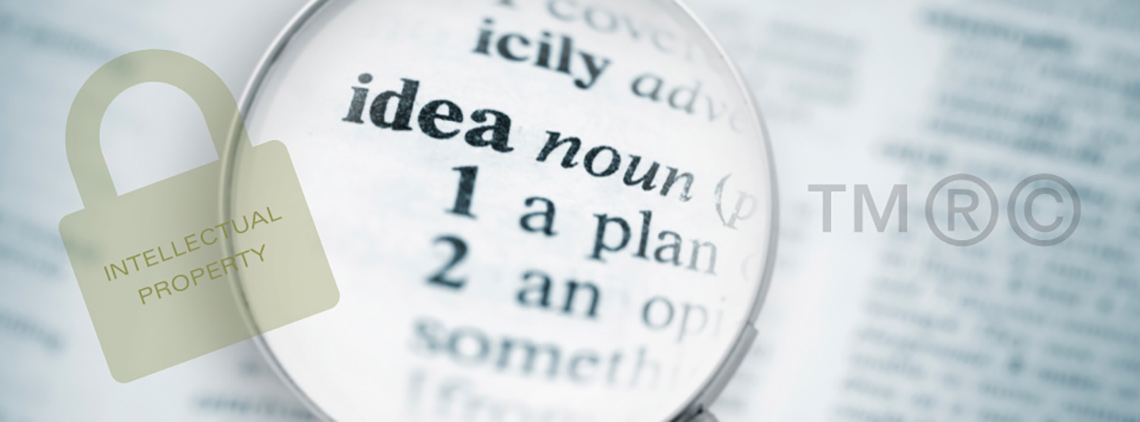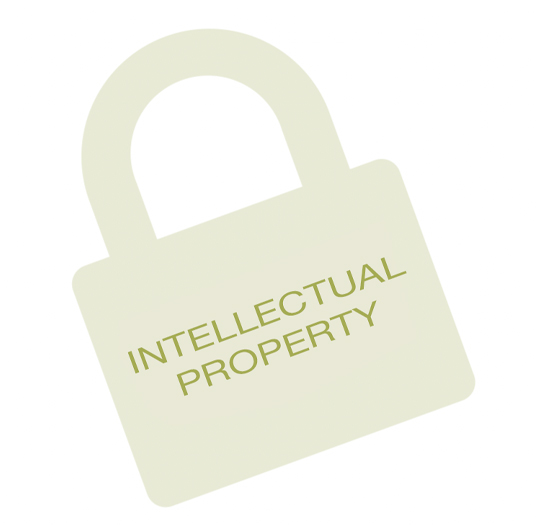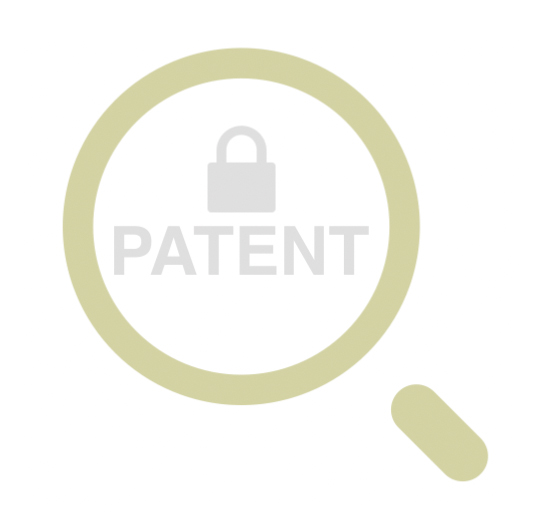

With over 30 years experience working in Intellectual Properties, we can help you with both research and legal protection in the UK, Europe and beyond. As experienced specialists we can offer you insight on how to protect your ideas, words and designs.
Lockhart & Hastings Ltd provide high quality Intellectual Property services covering all aspects of Trade Marks, Registered Designs, Copyright, Patent Searching and IP Common Law in the United Kingdom, Europe and internationally.
Whether you are an individual, a company or an overseas attorney, we are confident that we can provide the services you require efficiently, flexibly and cost-effectively. We are a dynamic, forward-looking firm with adaptability to suit individual client needs. We have a UK and international client base.

A Trade Mark is like a badge of origin of the goods or services to which it is applied. Through its acquired reputation, it also becomes a badge of quality. Trade Marks are most commonly words or images (logos) or combinations of these, but they can also be shapes, sounds or scents.
Obtaining a registered Trade Mark in the UK is a relatively quick and inexpensive process. We can also file in the EU and internationally depending on your requirements, working with associates in those countries as is necessary, or through the Madrid Protocol, a filing convention run by WIPO.
A registered Trade Mark will not prevent someone copying your idea but it may;
(i) deter an offender with a warning that the Trade Mark is registered,
(ii) provide a cost-effective means of redress for such copying through the courts.
Registering your Trade Mark is relatively inexpensive set against the likely costs of taking Common Law actions where you must prove the validity of your case – a registered Trade Mark does this for you. In that sense, registering a Trade Mark is best looked upon as a kind of insurance policy.
In defending your Trade Mark, whether it is registered or not, you may require IP (Intellectual Property) professionals to help you with monitoring and taking action when necessary. Also see our section on IP Common Law.
The UK IPO (Intellectual Property Office) encourages private applications; because of this, their Register is littered with Trade Marks of little worth. Usually, this is because the application does not adequately cover the goods or services provided. With the advent of the internet the Trade Mark field has become more complex but common pitfalls can be easily and inexpensively avoided by consulting IP professionals like ourselves from the outset.
Please see our FAQ section for a short video about Trade Mark registration and the benefits of professional advice.

We have filed Registered Designs, in many countries across the world, but most commonly in the UK and the EU (Registered Community Design) and we are happy to advise on all aspects of this Intellectual Property.
Registered Designs can protect the distinctive design of an item, which is not eligible for Patent protection. This means for example that you probably have not invented a better cup, but your design is unique. Registered Designs are an easy and inexpensive way of gaining protection for these designs and they are mostly relevant to industrial or manufactured goods.
A UK Registered Design protects you within the UK. You can extend your UK registered design rights to a number of other countries under The Hague Convention. Registered Designs are sometimes called ‘Industrial Designs’, ‘Design Patents’ or ‘Utility Models’.
The Community Design Directive of 1998 (98/79/EC) extended Registered Design rights into areas that might commonly be considered Trade Marks. It is important to note that they are not a cheaper form of Trade Mark as the extent and scope of the protection is very different.
We also provide Registered Designs searches, chiefly through the databases of the UK IPO, the EU IPO (DesignView) and WIPO (Hague Convention), since these are most relevant to the UK market. Other countries can be searched where there is a suitable database.

Generally the public has only a vague understanding of Copyright and the law.
Copyright comes into being through the act of creating something original and it arises automatically. However, design rights, patents and trade marks may be stronger and more appropriate. The language of Intellectual Properties is complicated, so we help our clients understand it better.
In the UK, copyright comes under Common Law and generally it belongs to someone (but not necessarily the creator, for example, it may belong to their employer).
Copyright can exist as an image, a piece of writing, as music, video or film. Generally speaking, if you publish something original;
(i) that you haven’t created yourself, you should get the consent of the Copyright owner,
(ii) that you have created yourself, you can add the © symbol with your name and year.
However Copyright is complex – just because you create something original does not mean you necessarily own the Copyright. If you are having something original created for you (e.g. a logo) it is wise to ensure that you do own the Copyright.
There are Copyright solutions available in the UK and in other countries, but it is best we discuss your specific Copyright issues as they arise.

Simply, a patent is for an invention, something novel. This may be an extension of something already known or a new application of it. Patents are granted for up to 25 years, renewable annually.
We are experienced Patent searchers. We conduct Patent searches using a range of databases or when appropriate we may use a specialist freelance patent searcher working in the field of the particular patent.
We are happy to advise on Patent matters but we do not file Patents as we are not Patent Attorneys. We offer professional advice and can refer you to a specialist Patent Attorney, working in the field of your query or convenient to your location, and with many years’ experience in the field we know many of these.
Most Patent Attorneys will give you an hour’s free advice on a prospective Patent, or you can book into a Chartered Institute of Patent Attorneys (CIPA) monthly clinic. (www.cipa.org.uk) Depending on your budget, we may advise you to conduct your own preliminary search online or at the British Library as this may also inform the development of your patent.

The UK and Ireland are Common Law jurisdictions. Not all Trade Marks are registered and one that isn’t may be covered by Common Law. Therefore a comprehensive Trade Mark search should also cover Common Law sources.
Having a background in librarianship and information science, we are resourceful in the conduct of Intellectual Property searches outside of the mainstream Trade Mark & Patent literature. Obviously the British Library is most heavily used for this, but other collections might be tapped as relevant to a particular search (for example Imperial College offers open access to a wider range of textbooks than the 8-10 years available on the open shelves at the British Library).
For reasons of space we donated our substantial collection of British mail-order catalogues (dating from the early 1980s) to the National Art Library at the Victoria & Albert Museum when we moved out of London in 2008. These are invaluable in demonstrating the use of a Trade Mark or a particular design, and also in their invalidation. They included catalogues from firms such as Freemans, GUS, Kays, Littlewoods and Trafford’s amongst others. The British Library took our Argos catalogues to improve their existing collection.
We also carry out watch-searches against the Companies House database for a number of clients, enabling early action against potential trespassers on their IP rights.


Many privately filed trade marks don't achieve the protection that was hoped for. This two minute video from CITMA (Chartered Institute of Trade Mark Attorneys), explains the value of taking professional advice.
See our section on Trade Marks for more information or contact us about getting your trade mark registered.
BACK TO LIST OF FAQ CONTACT USOn Brexit, European Union Trade Marks (EUTM) and Registered Community Designs (RCD) became UK Registered Trade Marks or Registered Designs; there was no immediate loss of IP protection, but they will be subject to a separate renewal fee for the UK. Madrid Protocol trade marks designating the EU also became UK Registered Trade Marks but the link with WIPO (the World Intellectual Property Organisation is broken. Renewal of such trade marks at WIPO will not renew the UK clone. The same applies to Registered Designs under the Hague Convention. If you hold an EUTM or RCD you should check the status of its UK clone. You may, for example, have an address for service in the EU with whom the IPO corresponds for the time being, but will eventually cease to do so; we now act for many European companies in this respect.
Otherwise, Brexit made EUTMs and RCDs more expensive in themselves, aside from the need for a separate UK registration. We do our best to keep these increased costs to a minimum.
There will be an inevitable divergence of UK and EU IP law over time; pre-Brexit experience showed that the IPOs of countries like Norway, Switzerland and Turkey sought to keep in harmony with EU practice. Left in the hands of IP professionals it is likely that we would do the same. British judges made significant contributions to EU IP Law and are much missed.
The European Patent Office (EPO) is not an EU institution, so there are no changes for patents.
BACK TO LIST OF FAQ CONTACT USGenerally the public doesn’t have a good understanding of intellectual properties. The language people use is often imprecise and frequently confuses copyright, trademarks and patents. This isn’t a problem and it can all be clarified. Briefly, a patent is for an invention, something novel; a trade mark is what you call your product when marketing it or a logo to that end, and copyright is complex.
See our sections on Trade Marks, Copyright, and Patents for general guidance or contact us if you have a specific enquiry.
BACK TO LIST OF FAQ CONTACT USA domain name does not protect your business name – a registered trade mark does.
Domain names have always been a weak intellectual property, and as they proliferate with the new gTLDs (Generic Top Level Domains) that is more so. Domain registrars are commercial businesses who will happily offer someone your-business.com even though you have registered yourbusiness.com. If your business name isn't a registered trade mark it is very difficult to prevent infringement. However, in the event that a domain name conflict is a commercial problem for you, there are procedures for taking down or transferring a domain name. Please contact us if you need further advice on this.
In contrast a registered trade mark is granted by a government body who carry out an examination of new applications against prior rights, although the owner of those rights may have to monitor and take action against such applications.
Register your trade mark if you want to protect your business name. See our section on Trade Marks for more information or contact us about getting your trade mark registered.
BACK TO LIST OF FAQ CONTACT USGenerally speaking we advise to have as few domain names as possible. You need a policy on which domain names you need and a monitoring and review process to maintain them.
There are more than 1,000 Top Level Domains now available and ICANN is considering more.
.com (Commercial) is still the most favoured by businesses as well as its UK equivalent – .co.uk
If you a trading outside the UK a domain for that locality may be worthwhile, e.g. – .fr or .eu
.org is the international domain for organisations – .org.uk for UK organisations.
Some of the new commercially owned gTLDs might be of interest to a business for marketing purposes, e.g. – .london might be useful to a business based there, and one of our clients has opted for the quirky .kiwi because it suits their business. We generally notify our clients of the sunrise periods (when trade mark owners can stake their claim to a domain name) that might be of specific interest to them.
The best way of protecting your business is to register your trade mark. See our section on Trade Marks for more information or contact us about getting your trade mark registered.
BACK TO LIST OF FAQ CONTACT USChina is a huge, exciting and expanding market. Despite what is said of it as ‘the wild east’, it is rapidly catching up on intellectual properties, because, like Japan, Hong Kong, Taiwan and South Korea before them, it is now their IP that is under threat.
Registration of a trade mark in China is relatively straight forward and inexpensive. We work with associates in China and Hong Kong who advise us of the detail and issues as they come up. It is a learning process, which we share with our clients.
We have been filing and defending trade marks in China through our associates for many years, and it has been an increasing area of our work. If China is of interest to you please see our PDF fact sheet or contact us if have a specific enquiry.
BACK TO LIST OF FAQ CONTACT USPlease feel free to contact us and we’ll discuss the issue with you.
Lockhart & Hastings Ltd was established by Stewart Rayment in 2008, taking its name from two of the London streets in which the company had offices at that time. By coincidence the company moved to Hastings on the south coast of England in 2010.
Stewart Rayment has worked in intellectual properties for over 30 years. His first job was with the Trade Mark searching firm S. E. Kingsley & Co. Prior to this he had worked in librarianship and studied at the London School of Economics.
He become a partner in the IP firm Kingsley & Talboys in 1990. He moved into Design, Patent and Common Law searching as well as Trade Marks, which took on an increasingly international dimension. He also started filing Trade Marks and Registered Designs, in the UK, EU and worldwide.
Stewart has been a student member of the Education Committee of the Institute of Trade Mark Attorneys (ITMA) and acted as their in-house ‘paparazzi’ for many years – having a camera to hand has always been a valuable tool in IP investigation!

29 St Helen’s Crescent, Hastings, East Sussex, TN34 2EN
Registered in England No: 07644260 Registered office as above
VAT Registration No: 174 8180 87

No personally identifiable data is collected by this website while browsing.
This website places a non-tracking cookie onto your device if you click OK on the cookies notice (this is used to prevent the cookie notice from re-appearing if you reload the page or if you revisit the website within 24 hrs, when this cookie automatically expires).
Third party cookies are placed in your browser by YouTube to enable video playing functionality for the Chartered Institute of Trade Mark Attorneys video in FAQ when you visit this site.
Social media links and social media sharing are enabled by sharethis.com. Third party cookies are used by Facebook, Twitter, Linkedin & Google to enable these services. These cookies are only placed in your browser when the social media buttons are clicked.
You can use your browser settings to delete these cookies at any time. Some browsers allow you to use a private or incognito mode which allows cookies to be used but deleted when you close the browser.
The EU General Data Protection Regulation (GDPR) has been incorporated into UK law (UK GDPR) and gives every business a set of obligations and every consumer strengthened rights regarding use of their personal information.
Under UK GDPR, information that relates to an identified or identifiable individual is classified as personal data.
Lockhart & Hastings Ltd (we) may need to process some personal data for the purposes of conducting normal business transactions with you. This may include your name, address, tel no and email. We will only process data that is necessary to fulfil contractual arrangements or legal requirements. We ensure that we securely store and manage any data that we process.
We will not use any personal data for marketing purposes without your consent and we will not sell or unnecessarily share this data with third parties.
We ensure that we securely store and manage any data that we process.
We may need to keep invoice and payment information beyond the end of a contractual arrangement for legal and accounting obligations.
You have various rights under UK GDPR. For more information visit: ico.org.uk/your-data-matters
If you would like to exercise your rights in regard to any personal data that we hold, please send an email to Stewart Rayment lockhart.hastings@outlook.com
Lockhart & Hastings Ltd
Registered in England No: 07644260 Registered office: 29 St Helen’s Crescent, Hastings, East Sussex, TN34 2EN
VAT Registration No: 174 8180 87